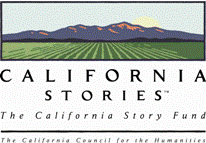HUNAB KU PROGRAM,
A MAYAN STORY FOR CALIFORNIA EDUCATORS.
Los Angeles, May 15, 2005
Fieldwork is the
hallmark of cultural anthropology. Whether in a New Guinea village
or on the streets of Los Angeles, the anthropologist goes to where
people live and “does field work”.
This means asking questions, eating strange foods, learning a new language,
watching ceremonias, taking field notes, washing clothes, writing letters
home, tracing out genealogies, observing plan, interviewing informants,
and hundreds of other things. This vast range of activities often obscures
the most fundamental task of all fieldwork: doing ethnography.
Ethnography is the
work of describing a culture. The essential core of this activity aims
to understand another way of life from the native point of view. The
goal of ethnography, as Bronislaw Malinowski put it, is “to grasp the native’s point of view, his relation to
life, to realize his vision of his world” (1922:25). Fieldwork,
then, involves the disciplined study of what the world is like to people
who have learned to see, hear, speak, think, and act in ways that are
different. Rather than studying people, ethnography means learning from
people.
This Hunab Ku program of public presentations conducted from December
2004 to April 2005 is a research for actual stories to learn about the
Mayan people of California. The Mayans are transnational communities
coming into North America from the diverse countries of Guatemala, El
Salvador, Honduras, Costa Rica, Belize, Nicaragua and Mexico.
Hunab Ku program is an ethnographic interview with ten storytellers
conducted by Jorge Luis Rodriguez and Maria Esther Ortiz from the Afrocuban
Research Institute (www.afrocuba.org) based on the enculturation (natural
process of learning a particular culture) according to the definition
of developmental research by James P. Spradler of Macalester College.
We implemented this research also from our experience in the transculturation process of the merging of two cultures according to Fernando Ortiz (1881-1969)
and our extensive fieldwork since 1976 exploring the complex syncretism
of African and European cultures in America.
“To describe this process the word trans-culturation , stemming
from Latin roots, provides us with a term that does not contain the implication
of one certain culture toward which the other must tend, but an exchange
between two cultures, both of them active, both contributing their share,
and both co-operating to bring about a new reality of civilization”,
writes Malinowski in his 1940 prologue to Cuban Counterpoint, a monumental
essay by Fernando Ortiz.
This research is
really about learning from the learner; this conversation lead by four
adults from the Mayan territories of Guatemala evolves into the learning’s
of the two teenager daughters Shirley and Karin. And more important,
this work is presented by the California Council of Humanities as part
of the California Stories Fund because of the many girls and boys who
may be able to learn more about their own place in the multiethnic
dimension of California.
You may be a K9 or
K12 teacher, or you may be a grandmother spending time with your grandchildren… these
transcripts and digital applications are made available to you to bring
out of yourself that storyteller that Californians always want to hear.
Our presentations
are bilingual in Spanish because native-language stories are needed
to minimize the influence of translation. Native-language questions
serve to remind our informants that the ethnographer wants to learn
their language; we want to pass to you the answers coming from that
relationship… so
that you may also pass it to a third party, no matter if you are planning
on presenting these Hunab Ku stories in Spanish or English.
Your tools are the written transcripts and a power point presentation.
Also a video slide show of fifteen minutes with musical background, digital
photography and a website application at http://www.afrocuba.org/HunabKu.htm
containing a guide to more diverse information.
We will continue
to work with original video and audio recordings to develop an ethnographic
novel from this fieldwork. Today we share this preliminary learning’s with you hoping that you will share it with
all the Shirley and Karin’s who are learning to build the future
of our California.
TEACHING RESOURCES:
- Hunab Ku Web Page: http:www.afrocuba.org/hunabku.htm
- Hunab Ku Transcript of Interview.
- Hunab Ku Power Point presentation.
- Hunab Ku Clips.
- Other Internet Resources:
- PBS: Lost King of the Maya: http://www.pbs.org/wgbh/nova/maya/
- Flash movie at http://www.13moon.com/animation_flash.htm
- Spanish Resource: http://oncetv-ipn.net/sacbe/index.html
- Internet search: Google. Keywords: Hunab Ku, Tecun Uman, Ajiz.
- Internet search: Guatemala, maps. Keywords: Quetzaltenango, Olintepeque.
- Upcoming Exhibition: Lords
of Creation: The Origins of Sacred Maya Kingship, a National Geographic Exhibition coming September 10, 2005
to January 2, 2006 to LACMA. (Los Angeles County Museum of Arts) www.lacma.org.
###
Afrocuban Research Institute
Director@afrocuba.org
Stage Of The Arts, Inc.
P.O. Box 26688, Los Angeles, California 90026
www.afrocuba.org
|




